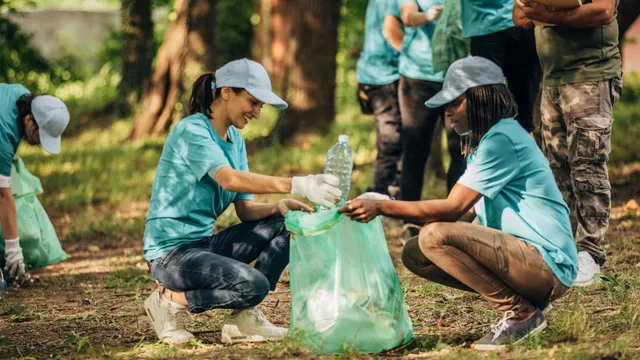In a world increasingly aware of environmental challenges, PET recycling emerges as a beacon of sustainability. This innovative process not only reduces waste but also transforms it into valuable resources, offering a solution to one of the modern world’s most pressing issues. This article explores how PET Recycling is paving the way for a more sustainable future, highlighting its benefits and the revolutionary impact it has on the plastics industry.
A Sustainable Solution to Plastic Waste
The surge of plastic waste in landfills and oceans has been alarming. PET recycling addresses this by converting used plastic bottles into new products. This not only curtails the amount of waste but also reduces the need for virgin plastic production, conserving resources and energy. By reusing materials, PET recycling supports a circular economy where resources are continually repurposed, minimizing environmental impact.
Economic Advantages of PET Recycling
Recycling PET is not only an environmental boon but also an economic one. It creates jobs in the recycling and manufacturing sectors, contributing to economic growth. Additionally, it reduces the costs associated with waste management and landfill operations. By turning waste into wealth, PET recycling presents a cost-effective alternative to traditional waste disposal methods, offering substantial savings for industries and municipalities alike.
Energy Efficiency and Resource Conservation
One of the standout benefits of PET recycling is its role in energy conservation. Producing new products from recycled PET uses significantly less energy than creating them from raw materials. This reduction in energy consumption translates to lower greenhouse gas emissions, playing a crucial role in combating climate change. Additionally, recycling conserves natural resources, ensuring their availability for future generations.
Enhancing Product Innovation and Quality
PET recycling is a catalyst for innovation in product development. Recycled PET (rPET) is used in various applications, from clothing and carpets to automotive parts and packaging. Its versatility allows manufacturers to create high-quality, durable products while maintaining environmental integrity. The use of rPET encourages companies to innovate and improve their sustainability practices, leading to better products for consumers.
Building Consumer Trust and Brand Loyalty
In today’s market, consumers are increasingly conscious of their environmental footprint. Companies that adopt PET recycling demonstrate a commitment to sustainability, enhancing brand image and consumer trust. By choosing products made from rPET, consumers can make environmentally friendly choices that align with their values. This shift fosters brand loyalty and supports businesses that prioritize sustainability.
Reducing Carbon Footprint for a Greener Planet
The carbon footprint associated with PET production and disposal is significant. PET recycling mitigates this by reducing the need for new plastic production and lowering carbon emissions. By supporting recycling efforts, individuals and industries can contribute to a greener planet, showcasing the power of collective action in addressing global environmental challenges.
Educational Opportunities and Community Engagement
PET recycling initiatives often include educational programs to raise awareness about the importance of recycling and sustainable living. These programs engage communities, encouraging participation and fostering a culture of sustainability. By educating the public, PET recycling not only revolutionizes the plastics industry but also instills a sense of responsibility and stewardship for the environment.
Promoting Healthier Ecosystems
Plastic pollution harms ecosystems, endangering wildlife and natural habitats. PET recycling helps mitigate these effects by reducing the volume of plastic waste that ends up in the environment. By keeping plastics out of landfills and oceans, recycling protects biodiversity and promotes healthier ecosystems, ensuring that natural habitats can thrive.
Fostering Global Collaboration and Innovation
PET recycling underscores the importance of global collaboration in tackling environmental issues. Countries worldwide are adopting recycling technologies and sharing best practices to enhance their sustainability efforts. This international cooperation fosters innovation, leading to improved recycling processes and technologies that benefit the entire planet.


